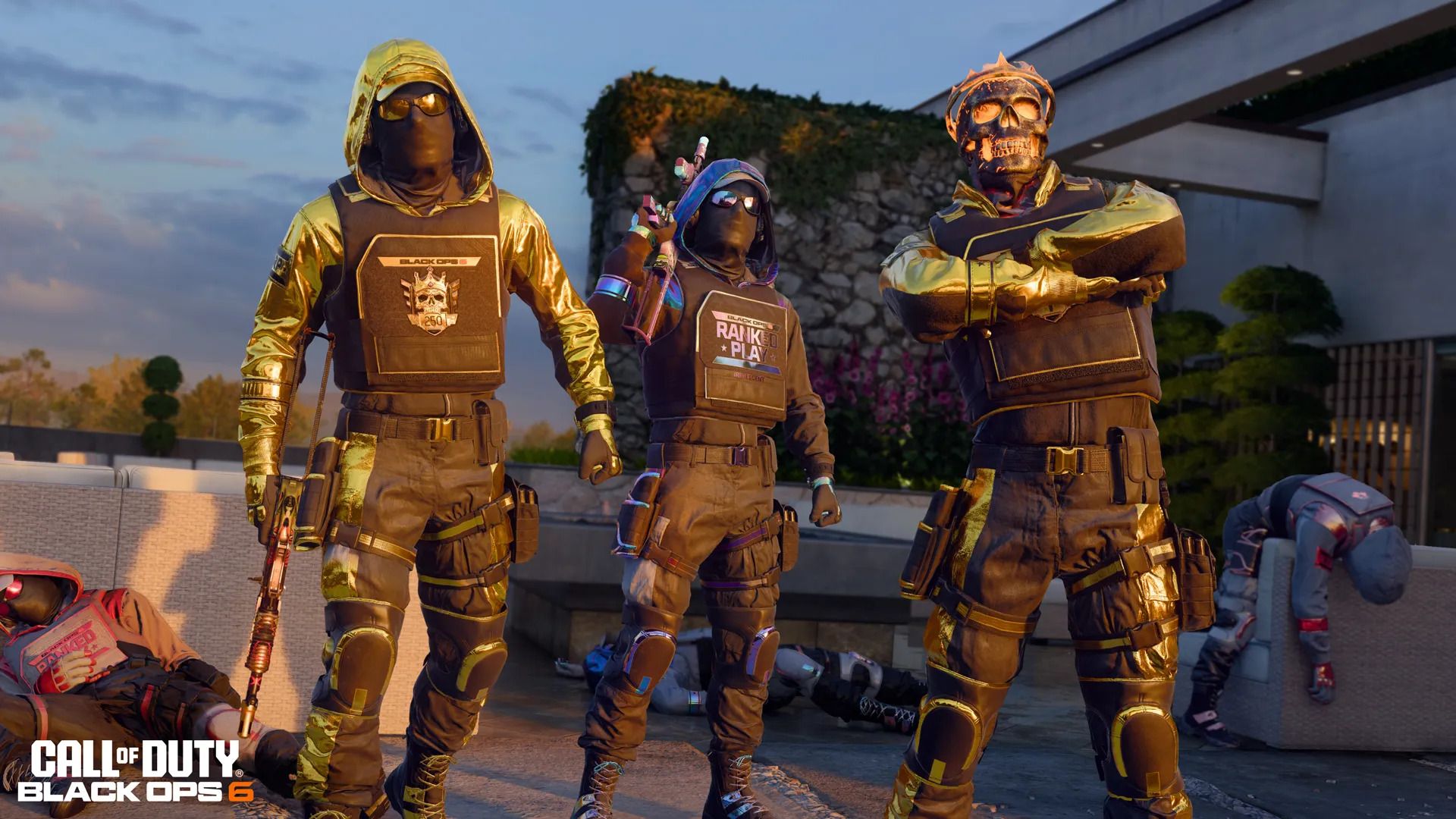Online competitive multiplayer games are wildly popular, with players around the world battling it out every day. But they’ve also earned a reputation for being unwelcoming, especially to new players or casuals who care more about fun than being the best of the best.
Well, I’m here to tell you the landscape has changed. Competitive multiplayer is now a lot friendlier. These days, it doesn’t take nearly as much to win matches, climb the scoreboard, and unlock that sweet dopamine.
Why You’ve Been Avoiding Competitive Multiplayer
Online competition in video games is more intense and cutthroat than ever, so I wouldn’t blame you if you’ve opted to sit it out. Things are a lot different now than they were 20 or so years ago, back when competitive online multiplayer was just getting its footing with iconic titles like Halo 2. Nowadays, you can make a career out of gaming. Whether it’s winning tournaments for huge prize pools or streaming full-time on Twitch, there’s real money in something most people didn’t take seriously until recently. Heck, you can even earn a full-ride college scholarship based on your skills.
Gaming isn’t a niche hobby anymore—it’s mainstream. Naturally, the base level of competition has skyrocketed. Competing today takes dedication, consistency, and often some innate talent, too. Not everyone is ready or able to make that kind of commitment, and that’s totally understandable.
Even if you do want to compete, life doesn’t always make it easy. If you’re an adult with a full-time job, bills to pay, and maybe even a family to support, you simply can’t put in the same number of hours as a responsibility-free teenager on summer break.
And then there are those who don’t care to “git gud” in the first place. They just want to come home from a long day of school or work and kick back with some games. But that’s tough when everyone else in the lobby has more playtime, deeper game knowledge, and sharper mechanics than you, leading to frustrating losing streaks and poor performances.
No one likes to lose, and getting absolutely stomped sucks. It’s even worse when the toxicity that so often comes with online multiplayer rears its head. There’s nothing more demoralizing than logging on to unwind and getting berated by some squeaker over voice chat. Games are supposed to be fun.
So if you’ve been avoiding competitive multiplayer, I get it. But thanks to some relatively recent innovations, the experience is a lot more welcoming to the average player than it used to be.

Related
40 Chill Games to Unwind From Your Stressful Life With
Looking for a game to unwind with?
Skill-Based Matchmaking Fixes the Problem
The innovation I’m referring to is skill-based matchmaking (SBMM). SBMM is a system that prioritizes creating balanced matches between players of similar skill levels.
In the early days of online competitive multiplayer, matchmaking mostly focused on ping and latency. Fairness wasn’t really a factor unless you were in a dedicated ranked playlist. Nothing stopped a brand-new player from being thrown into a match against seasoned veterans. But that’s no longer the case. Today, SBMM is present in nearly every major multiplayer title; not just in ranked modes, but in casual, unranked ones too.
Before we go any further, let’s address the elephant in the room: SBMM is a controversial topic. It’d be naive to pretend developers always get it right. Matchmaking is complex, and there’s no one-size-fits-all solution. And yes—for specific groups like highly skilled streamers or players in the top percentiles—SBMM can sometimes feel more like a curse than a blessing.
Still, the core idea behind SBMM makes perfect sense. Why wouldn’t you want to be matched against players close to your skill level? It’s not fun when the gap is so large you have no chance of fighting back, let alone winning. One-sided matches are rarely enjoyable, and they’re usually not very educational, either. On the flip side, a lack of challenge can make games boring fast (and that’s true of life in general).
This isn’t just my opinion. Multiple studies, with data to back them up, have shown that SBMM improves player retention, motivation, and overall enjoyment. For the vast majority of players, it’s a net positive.
Research Backing Skill-Based Matchmaking
The Biggest Multiplayer Games Use It
As mentioned earlier, SBMM is now standard across all playlists in most competitive games. Call of Duty uses it, of course, but it’s also prevalent in massively popular titles like Fortnite, Apex Legends, and Marvel Rivals. And it’s not limited to shooters. You’ll find it in League of Legends, FIFA, Rocket League, and many others. Even games you might not associate with high-stakes competition, like Dead by Daylight and Fall Guys, utilize skill-based matchmaking systems.
In this day and age, very few online games offer playlists entirely free of SBMM. The ones that do generally don’t perform well for long. XDefiant, for example, marketed its lack of SBMM as a selling point—and while it saw early success with approximately eight million players in its first week, Ubisoft announced less than seven months later that it would be shutting the game down. That short lifespan aligns with Activision’s findings in Matchmaking Series – The Role of Skill in Matchmaking: without SBMM, a game’s population tends to drop off rapidly.
You Might as Well Play Ranked, Too
Now that you know how widespread SBMM is, I’ll go a step further and suggest not only giving competitive multiplayer another shot but jumping into the ranked playlist while you’re at it.
Hear me out: one of the side effects of SBMM’s rise is that the gap between ranked and unranked modes has never been tighter.
So, if you’re facing that level of competition either way, what’s the harm in playing ranked? At least you’ll earn visible rewards (like seasonal cosmetics) and see progress as you climb the ranks. In unranked, your skill is still being tracked behind the scenes, but you don’t get any recognition or feedback from it.
In fact, ranked can be one of the best places for beginners or more casual players to start. Most games place you in the lowest ranks to begin with, so you’ll often ease in with more forgiving matches. Ironically, if you’re an above-average player, you might even find ranked easier at first than unranked, at least until the system figures out where you belong.
As with any form of competition, it can be difficult to push past the pressure to perform or the anxiety that can come from playing with and against others. Competitive multiplayer brings out a wide range of emotions. And while you might feel like it’s not for you, if you’ve made it this far, I’d bet at least part of you is curious about giving it another chance, or maybe even trying it for the first time.
If so, I hope everything I’ve laid out here gives you a clearer idea of what to expect in today’s online competitive landscape. It’s no longer the lawless mess it once was. Owing to systems like skill-based matchmaking, there are more tools than ever in place to ensure fairer, more rewarding experiences for players of all skill levels.

Related
How Online Multiplayer Ruined Single-Player Games for Me
I love campaign mode, but I can’t convince myself to play it.




:max_bytes(150000):strip_icc()/how-to-fix-it-when-mobile-data-is-not-working-on-a-samsung-8bad7aa98c6b4a7d9457125309b9540c.jpg?w=1174&resize=1174,862&ssl=1)


:max_bytes(150000):strip_icc()/GettyImages-532031035-7887eba55093486880c9d08fa7e55658.jpg?w=1174&resize=1174,862&ssl=1)

Leave a Comment
Your email address will not be published. Required fields are marked *